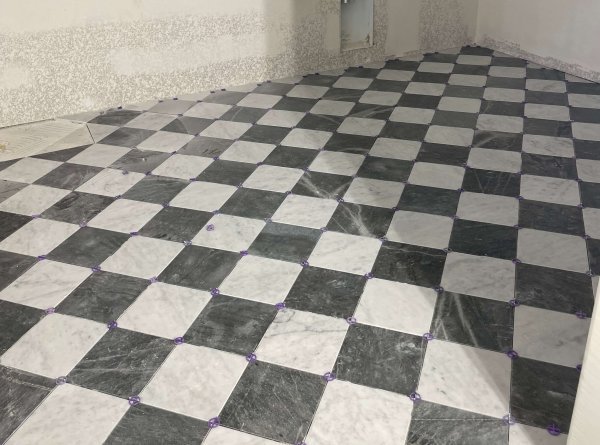Best Cleaning Products and Practices for Stone Tile and Slab — DESIGNED


Would you like to know the BEST cleaner to use on your marble countertops or your travertine floors? Do you ever wonder how to get stains out of certain stone surfaces?
After seeing all the #Cleantok videos on TikTok, are you using Fabuloso or other harsh cleaners in your home?
I have a few tips and recommendations for you today.
I attended a seminar a few weeks ago, as many designers have to if they are affiliated with ASID, NKBA or they are registered as interior designers in their state.
Continuing education is part of the expectations for keeping up your memberships, so while we need a certain amount of hours on HSW (Health, Safety and Welfare) some of it is just general education in the field.
This topic is something I always want more info about, as products (even natural materials) change all the time. As they are lived with in homes over a period of time, more experience is gained with maintenance and performance, etc.
Clean as a Whistle cleaning company presented this seminar and they are in Houston area homes every day cleaning surfaces of all kinds, indoors and out. They have a lot of personal experience and were sharing their expertise. If you need a professional stone cleaning and are in the Houston area, I’d definitely recommend them!
My blog contains affiliate links. Any purchases, at no additional charge to you, render me a small percentage, are most appreciated and make this blog possible. 🙂
Inherent qualities of Stone materials
In order to clean stone properly, you really need to understand the make up of your stone and how it will perform in your home.
I have a post (from another CEU I took a few years ago) that digs into the makeup of certain stones and their natural qualities. It’s great for helping you choose the stone that will require the kind of maintenance level you want in your home. Here’s the link, below.
The Scoop on Natural Stone Countertops
Basically, Calcareous stone reacts to chemicals (acid) and Siliceous stone does not.
Calcereous stones are marble, dolomite, onyx and travertine. Acidic foods and liquids like citrus, wine, sodas, tomato sauce and acidic cleaners will etch Calcereous stone.
Siliceous stones are granite, quartzite, slate and soapstone. They are not affected by acid but it is still not a good idea to use a harsh cleaner on any natural stone. When cleaning anything, it is a best to start with the mildest product possible and work your way to something stronger if needed.
Sealers
It is always wise to seal a natural stone product, whether a floor, countertop, or tiled walls.
There are penetrating sealers and topical sealers. They don’t make your stone bullet-proof, but they will help with absorption and permanent staining.
A penetrating sealer is usually best as it is absorbed into the stone and grout. It protects the stone through the material and allows water vapors to pass through.
If your stone has a polished finish, then it is likely less porous than if it was a more matte finish. The act of polishing sort of fills in the pores so your stone is getting some protection that way.
Top Tools For Cleaning Natural Stone Materials
If you are mopping, change your mop water frequently. A basic go-by that they shared in this presentation is to toss a penny in the bottom of the bucket. When you can no longer see the penny, it is time to change the water.
Here’s the popular mop bucket that you see all over social media.







